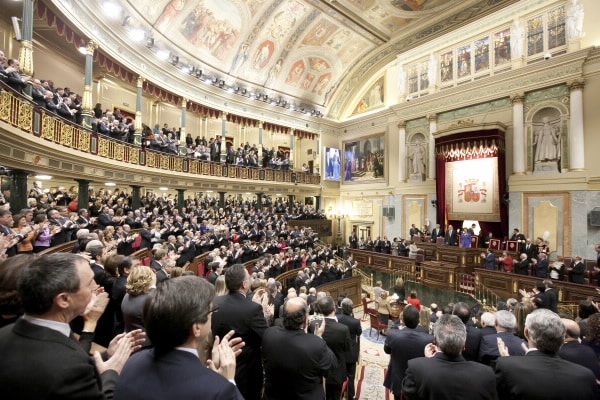Less than a week ago, it was announced that members of the U.S. Senate had received free Bitcoin. This was part of the “Crypto for Congress” initiative by the Digital Chamber of Commerce. The initiative was aimed at promoting crypto to members of the US Congress. It is interesting to learn that a similar initiative took place in Spain recently. Let’s take a look back at this operation, which could be emulated in Europe!
This Thursday, October 8, 2020, the members of the Spanish Congress had a pleasant surprise when they opened their mailboxes. They discovered that they had received one euro in Bitcoins! A total of 350 deputies from the 10 groups that make up the congress have benefited from this gift!
The action was organized by the educational platform called “Tutellus and Observatorio Blockchain”. No it is not a charity action but rather a communication action. The creator of the platform, Miguel Caballero, felt that it was time to make politicians aware of cryptos. This initiative was undertaken with the aim of “highlighting the transcendental role that cryptocurrencies will play in the transformation of the economy and society”. He also recalled that we are living in a particular era that sees a “profound change in the use of money”.
His main objective is to make Bitcoin, and more generally crypto, known in spheres rather known for their conservatism. In particular, he hopes that with this initiative, some MPs who have never heard of cryptocurrencies will be curious to know more. In this respect, his initiative is closely similar to the “Crypto for Congress” initiative in the United States.
Interest in cryptocurrencies is growing in Spain. Some banking organizations have even decided to invest in the field. For example, the Santander bank has signed a partnership with Ripple. The objective is to offer payment solutions based on the blockchain. Banco Bilbao Vizcaya Argentaria (BBVA), for its part, has launched research to develop cryptographic applications. However, much remains to be done to highlight the full potential of cryptocurrencies. In particular, politicians, as decision-makers, must be the first to be concerned and up to speed.
Beyond cryptocurrencies, it is also about communicating about electronic money. The experimentation of the electronic Yuan in China has been met with significant success. For their part, the United States is thinking about creating an e-dollar. Europe is also in the midst of reflection on this subject. This initiative comes at the right time. As Miguel Caballero reminds us, “with a digital euro in the future, we believe that our Members of Parliament, as representatives of the citizens, must be aware of the risks and advantages of cryptocurrencies”.


